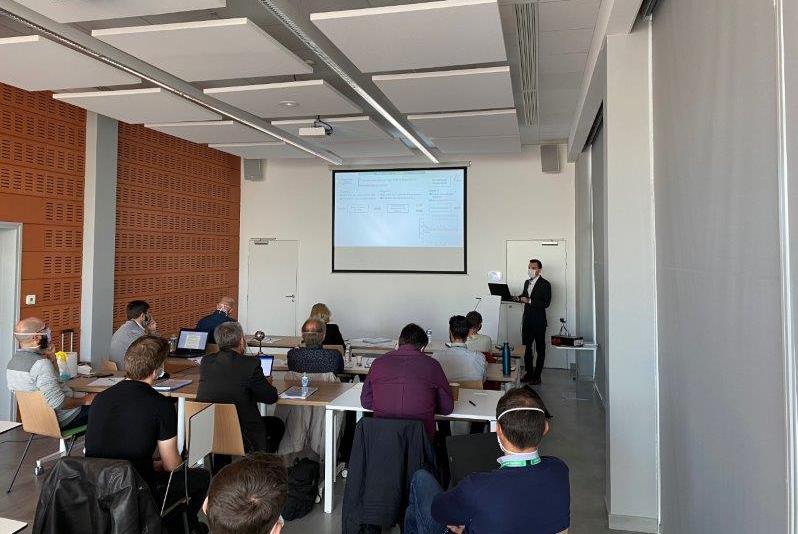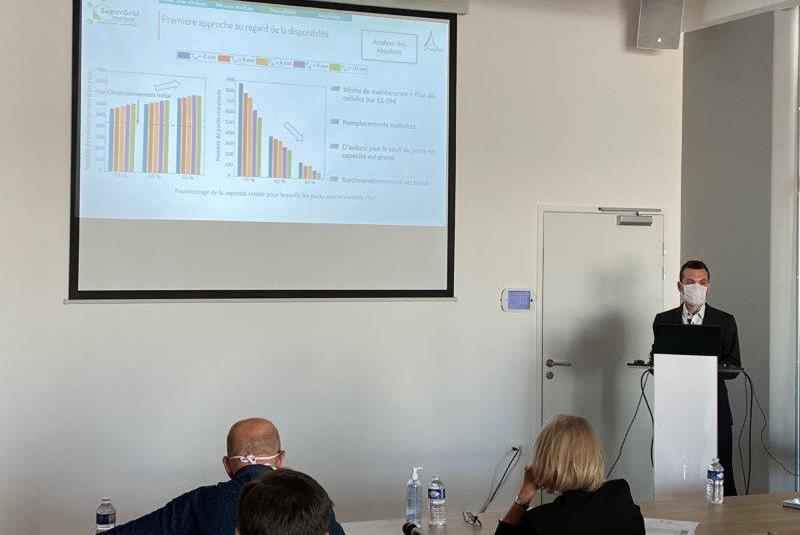PhD Florian ERRIGO
“Power converters with integrated energy storage systems
for high voltage direct current systems”
“Power converters with integrated energy storage systems
for high voltage direct current systems”


Abstract
Owing to the growth of renewable energy sources and the liberalization of the electricity market, it is increasingly difficult to ensure a cheap, secure and sustainable supply of the electrical energy. The massive introduction of intermittent sources, geographically spread, and the increasing power that have to be transferred through transmission lines have imposed new constraints on the existing alternating current power transmission network. These problems emphasize the limitation of the existing technologies and call for the reinforcement of the high voltage power system. In this perspective, High Voltage Direct Current (HVDC) links have appeared as an attractive solution to transmit more power across long distances in a more economical and environmentally friendly way. This situation have been enabled by the remarkable advances in power electronics that lead to the increasing deployment of the Modular Multilevel Converter (MMC). In comparison with the conventional topologies, its structure no longer relies on the series connection of power semiconductors devices for blocking high voltage. On the contrary, it consists in a set of identical power converters with a low capacitive storage, the so-called submodules (SM). This main difference allows to reach higher voltage levels than classical two-level voltage source converters. Moreover, a new degree of freedom is brought in terms of control since the internally stored energy is split inside the converter in a distributed manner. This asset is further increased if an energy storage solution is added. By increasing the energy capacity of the converter, it can not only ensure its proper operation but also offer a suitable solution to the needs of ancillary services expressed by grid operators to enable maintaining the stability of the grid.
This thesis focuses on the opportunity to integrate energy storage systems inside a modular multilevel converter with the aim at tackling the challenges of resiliency and reliability of the electricity transmission network.
First, an overview of the context and a state of the art are presented to highlight the framework of these research works. Then, the modelling and the control principles of the modular multilevel converter are exposed. The use of the degree of freedom brought by the control of the internal energy of the converter to provide ancillary services, thanks to the integration of energy storage systems, is studied. In the same way, the opportunity to partially distribute energy storage systems within the converter and the influence on converter components are analysed.
The second part of this thesis addresses the practical considerations about the insertion of an additional energy storage device, here supercapacitors, in a sub-module. With this aim in mind, a comprehensive review of the different interface solutions proposed in the literature is presented. A general methodology to evaluate the comparison of these diverse topologies is developed. From this study, an novel interface converter, suitable for these high voltage applications and economically attractive, is presented. Then, its model is detailed. This chapter also presents an appropriate control methods allowing a good energy management and minimal interactions with the overall control of the converter. Simulation and experimental results validate the proposed control strategy.
Finally, the reliability and the availability of such a solution are evaluated. An assessment of performance degradation of energy storage systems, under a specific mission profile, during the life expectancy of HVDC converters is done. In this perspective, to define the availability of an energy storage function over time and the maintenance policy to consider, Monte Carlo simulations, that estimate the expected value of a random variable by generating a large number of sample according to a given probability law, are performed. They allowed to take into account the high modularity of the converter and the natural dispersions among the characteristics of thousands of energy storage devices that are integrated.
Thesis director: Pascal Venet
Thesis co-director: Ali Sari
Keywords : high voltage direct current (HVDC) transmission, modular multilevel converters (MMC), ancillary services, energy storage, supercapacitors


